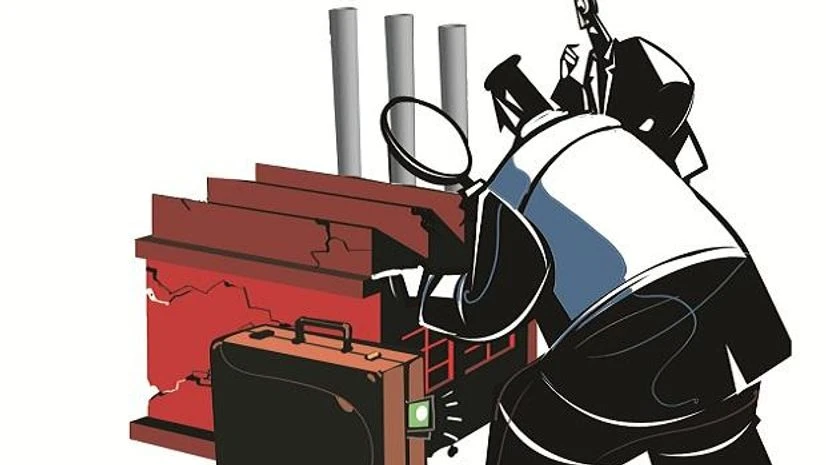The NCLT on Monday ordered the liquidation of Overnite Express after admitting the plea of its lender Deutsche Bank AG against a resolution plan submitted by a member of the debt-ridden company's suspended board.
While the Insolvency and Bankruptcy Code (IBC) bars promoters of a corporate debtor from submitting a resolution plan under the CIRP, there is relaxation for MSMEs.
The resolution plan was submitted citing that the company is an MSME under the Corporate Insolvency Resolution Process.
A two-member bench of the National Company Law Tribunal (NCLT) ordered the liquidation of corporate debtor Overnite Express "with immediate effect" as a time frame of more than 330 days of the Corporate Insolvency Resolution Process (CIRP) has already elapsed.
It also appointed Tarun Jain as liquidator of the corporate debtor to carry on the liquidation process as per the relevant provision of the IBC 2016.
A resolution plan was submitted on behalf of a member of the suspended board of Overnite Express, claiming that the corporate debtor falls under the MSME category in terms of the central government's notification dated June 1, 2020.
More From This Section
The total admitted claims of the secured financial creditors are Rs 10.82 crore against which they are offered a meagre amount of Rs 3.24 crore, which is approximately 30 per cent of the admitted claims.
Deutsche Bank AG's claim is Rs 6 crore and was offered 30 per cent of the admitted claim. The said offer was without considering the valuation of the security held by the applicant, which is valued at more than Rs 12 crore as of date.
It was alleged by the bank that the resolution professional is in hand in glove with the suspended board of directors, who is the successful resolution applicant also.
It also alleged that RP has not conducted any forensic or transactional audit of the corporate debtor in order to find whether any defrauding of the assets of the corporate debtor has been carried out by the suspended board of directors or by any third party.
Moreover, RP received MSME certification during CIRP and submitted the resolution plan.
Section 29A of IBC forbids the promoters to submit a bid, however, section 240 A provides an exception for MSMEs.
It says section 29A shall not apply to the resolution applicant in respect of CIRP of any micro, small and medium enterprises.
The NCLT agreed with the submission of the bank and said: "Under the garb of fixing the criteria for the intending Prospective Resolution Applicants, the RP cannot assume the role of a 'Facilitator' to enable the Defaulter Promoter(s)/ Suspended Board of Director(s)/Ex-Management to submit the EOI/Resolution Plan by abusing the provisions contained under Section 240A of IBC 2016".
NCLT said IBC does not empower the RP or the CoC to obtain an MSME certificate to enable the back door entry of the defaulting promoters into the corporate debtor.
"We conclude that neither the Promoters/Ex-Directors nor the RP/COC are empowered under the IBC 2016 to obtain an MSME Certificate post-commencement of CIRP with the sole purpose of opening or enabling a back door entry to the defaulting promoters, who are otherwise barred under Section 29A of IBC, 2016 to submit the EOI/Resolution Plan," it said.
NCLT further said: "Accordingly, the prayer (b) of ... is allowed and the Resolution Plan filed is rejected".
(Only the headline and picture of this report may have been reworked by the Business Standard staff; the rest of the content is auto-generated from a syndicated feed.)

)
